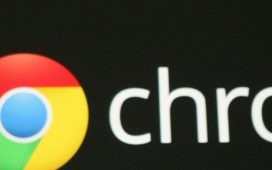In the age of the internet, Googling symptoms and treatments has been common practice for patients, and sometimes even doctors. The recent explosion in popularity of podcasts and short-form video content such as TikTok, however, has increased the amount of misinformation in search results to levels we have not seen previously – and this is now having tangible effects in the concerns patients present with in clinics and A&E.
This month’s BBC report around Steven Bartlett’s podcast, The Diary of a CEO, showed it was spreading harmful health misinformation, capturing a wider image of a moment we are currently seeing – people have less trust in health professionals and are increasingly relying on videos and other engaging content they see online.
I have seen patients while working in A&E who have heard online that hormone-related diseases such as thyrotoxicosis or diabetes can be treated with herbal and topical therapies so have actively chosen to not take medication, instead choosing to take different supplements or alternative therapies. A quick search reveals why: there are countless videos of wellness influencers not only advocating for alternative medicines, but discouraging people from taking conventional ones.
One of my colleagues who works in general practice has had patients come in reporting they need blood tests to check their magnesium levels, after seeing on TikTok that it is the cause of symptoms such as tiredness, only to find that their levels are normal. This is because magnesium deficiency presents often with nonspecific symptoms, but medical professionals know it is uncommon in healthy people. It is evident that people are becoming more influenced online about their health, and therefore more prone to using it as a resource for information on how to treat themselves – this is, in most part, an inherently good thing, but what is worrying is where they are now sourcing this information from.
On The Diary of a CEO podcast, for instance, there have been guests who suggest ketogenic diets cure cancer, and others stating that Covid vaccinations, which have saved millions of lives, did more harm than good. The suggestions may seem ridiculous, but I worry it will be taken seriously by listeners, given Bartlett seems too timid to appropriately challenge the guests he hosts, and not all viewers research the content they are shown afterwards. The Joe Rogan Experience, which is considered the most popular podcast in the world, has had a plethora of health misinformation scandals. He once suggested the Covid vaccination was ‘“gene-therapy” and has had a considerable number of episodes where his guests have spouted nonsense related to health, pandering towards conspiracy theories.
Naomi Klein brilliantly explained in her 2023 book Doppelganger the concept of diagonalism, the belief that power is tied to conspiracy and how this has filtered through to day-to-day life in western society since the pandemic. Diagonalism, a term coined by William Callison and Quinn Slobodian, explains a shift in the categories of left v right politics, instead showing how people once considered to be from leftwing or apolitical spheres end up moving towards the far right with the shared belief that power is innately linked to conspiracy. This kind of widespread conspiracist thinking that assumes our lives are controlled by sinister governments and health organisations has become more prevalent since the pandemic.
Podcasts such as Rogan’s or Bartlett’s and their clipped-up short videos on apps such as TikTok have directly fuelled this continued rise of misinformation and distrust, by having guests who often give atypical medical advice criticising the status quo of science and medicine.
We are now seeing in the latest reports from the NHS that MMR1 and MMR2 vaccination coverage at five years is at its lowest levels since 2010. It comes as no shock that the outcome is a rise in cases of measles over the past year across the country, which I have seen in hospital myself. Thankfully, catchup programmes carried out after these outbreaks showed a rise in uptake, particularly in deprived areas. However, I fear that with Robert F Kennedy Jr entering the Trump administration, clips of his vaccine misinformation will continue to spread and will spill over across the Atlantic.
The truth is, patients are not to blame for the information they are receiving online. These are often vulnerable and worried people, and with current waiting times so high, and poor funding for public health, as well as the lack of regulation for this content, I feel for patients. I, for one, am always glad when a patient comes into the hospital who has read or heard of a suggestion online about their health, because they have come to the right people to discuss it with, even if they have a distrust towards healthcare professionals. I am also glad that for every pseudo-influencer, there are great health content creators such as Dr Karan Rajan, who uses his platform to help provide an evidence-based approach to viewers who have concerns about their health. Ultimately, TikTok and podcasts have the potential to be a source for effective and useful health guidance, but currently it is not quite there.
Without active intervention into regulating the content we see online with fact-checking, scrutiny and an increase in public health initiatives to stop the spread of misinformation, this content will continue to rise and put patients’ health at risk.
-
Do you have an opinion on the issues raised in this article? If you would like to submit a response of up to 300 words by email to be considered for publication in our letters section, please click here.
READ SOURCE










